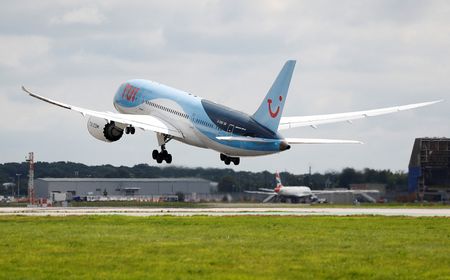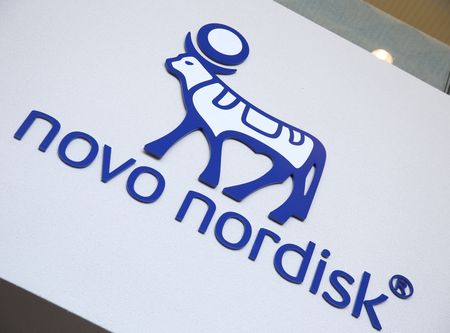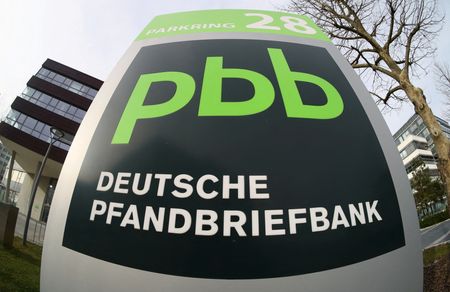By Marleen Kaesebier and Joanna Plucinska
(Reuters) -Europe’s largest travel operator TUI flagged a 1% drop in summer bookings on Wednesday, helping knock its shares down more than 10%.
TUI, which maintained its 2025 outlook, blamed the shift in summer bookings on a later Easter, which impacted most airlines’ January to March reporting – though European carriers Air France-KLM and British Airways-owner IAG so far have reported a stronger January to March.
In a statement, CEO Sebastian Ebel said that given economic conditions, 2025 will be “challenging”. “Europe needs new momentum. We must return to an overall economy that is growing,” he said.
Shares in the company were down 10.3% at 0802 GMT, with analysts and investors pointing particularly to the German market as a weak link.
“The weakness in Germany could suggest we move away from the top end of guidance (if trends continue),” analyst Ed Vyvyan at Redburn Atlantic told Reuters, adding that competitors had been more aggressive than TUI on volume and price.
Chief Financial Officer Matthias Kiep said Germany as a whole was suffering from uncertainty, particularly following its recent change in government. “Companies have all announced that they won’t be growing, have announced that they’re letting go of employees,” he said.
For the January to March quarter TUI on Wednesday reported an underlying loss before interest and taxes of 206.8 million euros ($231.4 million), wider than the 188.7 million euro loss it reported a year ago but narrower than the 224 million euros expected by analysts polled by LSEG.
Ebel said on a media call that booking momentum had picked up since May 1 and summer bookings would likely be on par with last year. “You can lose in winter and win in summer,” Ebel told reporters.
TUI has sought to diversify its income, expanding in Asia and central Europe, in an effort to bring in new streams of revenue as fears grow over European demand.
Ebel said it will likely take three years for the benefits of that strategy to show up in the TUI balance sheet, but that the company had managed to avoid losses tied to the new projects.
The group’s quarterly revenues slightly improved year-on-year to 3.71 billion euros from 3.65 billion euros a year before.
($1 = 0.8937 euros)
(Reporting by Joanna Plucinska and Marleen Kaesebier; Editing by Ludwig Burger, Janane Venkatraman and Jan Harvey)









